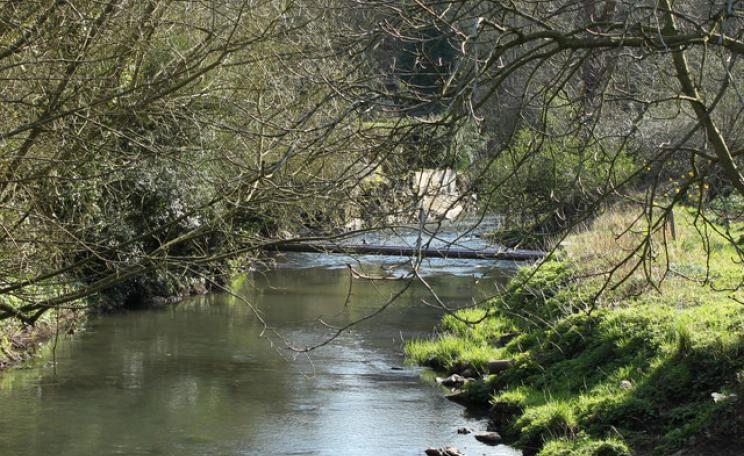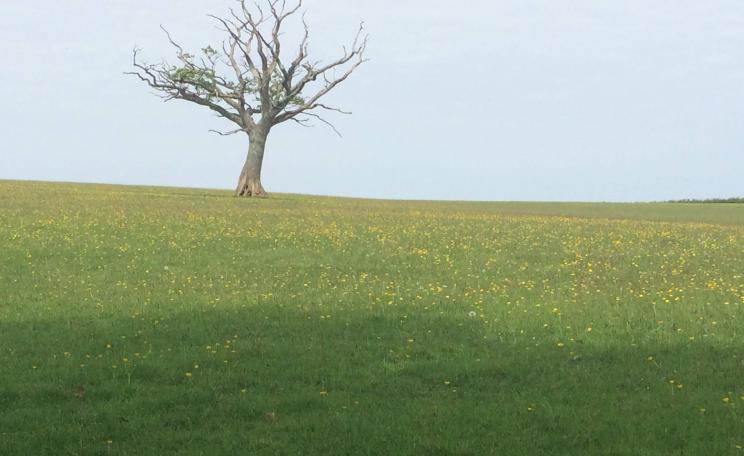You’re more likely to be killed by a falling coconut than a shark
Whether you love them, hate them, want to eat them or film them, sharks are creatures that illicit a fervent response in most people.
With 468 described species inhabiting every part of our ocean, from the depths to the shallows, polar to tropics, shorelines to the open ocean, there’s certainly a lot to choose from. The thing is though, this group – the elasmobranchs, or ‘cartilaginous fish’ (including rays and skates) – is not doing so well.
Sharks have inhabited the world’s ocean for over 400 million years. They’ve survived five mass extinctions, and out-competed dinosaurs in the race for survival. So why now, in the year 2013 are we seeing such dramatic declines in many shark species? Over 15 percent of the 468 are now classified as threatened by the IUCN – and that’s just the ones we know enough about to make a decent assessment. Quite simply, they’re getting hammered by humans, with recent estimates suggesting that we kill 100 million sharks worldwide every year.
On top of this we have to look at the bigger ocean picture. Threats such as habitat destruction, pollution, widespread overexploitation, climate change and ocean acidification, all mean that the ocean – and the marine life within it – is under a fair amount of pressure.
So what can we do to save our sharks at the same time as restoring and protecting the ocean? Enter Project Ocean.
Project Ocean is a rather unusual collaboration – between the world’s oldest zoological society – The Zoological Society of London (ZSL), and one of the UK’s most luxurious department stores - Selfridges. Established in 2011, Project Ocean has two key messages: vote with your fork by eating only sustainable fish, and support the creation of more marine protected areas (MPAs).
With these key messages in mind, this summer sees the launch of a new Project Ocean initiative, ‘Shark Parks’, a concept encompassing the amazing diversity of sharks with ocean conservation, citizen science and the global need for more MPAs. Led by ZSL, in collaboration with partners around the world, ‘Shark Parks’ - important areas of the ocean dedicated to the conservation of sharks - will aim to reverse the decline in shark numbers and help deliver greater and better ocean protection. It’s a very simple idea – take the fascination people have with sharks and use it to achieve conservation gains for both sharks and the marine ecosystems they are part of.
You’re more likely to be killed by a falling coconut than a shark
On land, national parks are places where the natural environment is celebrated, preserved, studied, cared for and enjoyed. The Shark Park concept follows the same ideals. Like national parks on land, some may be strictly protected with access granted by permit only and where the only activities allowed are sight-seeing and photography. In other Shark Parks, sustainable activities might continue, so long as they’re compatible with measures to protect shark populations within the ‘park’ boundaries and preserve the habitats they depend upon.
There’s loads of fantastic marine conservation work being done today throughout the world and the Shark Park concept wants to acknowledge this, and where possible, contribute towards it. It’s not about reinventing the wheel – it’s about shouting louder about how great the wheel is, at the same time as giving it a grease and a polish. There is not a ‘one size fits all’ rule in marine conservation – especially when it comes to MPAs. There are however goals that we all aspire to, including effective management and enforcement, public support, quality scientific monitoring and research, and of course – sufficient funding. Hopefully the Shark Park concept will help us achieve some of these goals in MPAs (old and new) around the world.
Alongside the launch of Shark Parks, Selfridges and the Project Ocean partners are challenging the world to think differently about sharks (steering more for simple fascination, rather than ‘morbid fascination’). Did you know that you’re more likely to be killed by a falling coconut than a shark? Apparently the deadly falling coconut kills around 150 people every year. Comparatively, in 2012 only seven people were killed by sharks worldwide. And watch out for those champagne corks – they’re responsible for 24 deaths each year.
Under the banner of ‘Save our Sharks’, Selfridges’ Oxford Street store in London is currently undergoing a ‘shark take-over’, making an impassioned bid for customers, partner brands, fellow retailers and people around the world to recognise their importance to the environment and understand the threats they face. And with the help of ZSL and the international marine conservation organisation, Oceana, Selfridges is leading by example, having undertaken an extensive audit of its beauty and health concessions to ensure all products are 100% free of shark oil and shark by-products.
That’s right – unbeknownst to most consumers, shark oil is an ingredient found in some face creams and lotions. Shark oil contains a compound called ‘squalene’ that acts as an emollient. Squalene can also be obtained from vegetable sources, including olives and wheat germ. The trouble is, under current EU labelling regulations, the consumer has no idea whether their product contains plant-derived squalene, or whether they’re unintentionally slapping dead shark on their face.
It’s not great for the sharks either. Deep-sea species, such as the Portuguese dogfish and gulper shark, are targeted due to their large livers. These species are particularly slow-growing, with low reproductive potential. It takes around 3,000 sharks to produce just one ton of squalene. With a global market of 1,000 to 2,000 tons per year, we’re looking at the killing of 6 million sharks every year for this trade alone. It’s unsustainable and unnecessary.
Having removed all beauty products containing shark oil from its shelves, Selfridges is now working with brands to raise awareness of the issue, and encourage reformulation using the equally effective plant-based alternatives. Ideally we want the regulators to take notice and sort out the hugely confusing and unclear labelling of beauty and health products throughout the EU, so that consumers can make an informed decision. In the meantime, we hope that other retailers will follow Selfridges, shedding light on the issue and reducing the demand for shark oil in the first place.
There have been some really positive changes for sharks over the past few years, such as the introduction of various finning bans across the world (including in European waters), the setting of zero ‘Total Allowable Catch’ levels for some vulnerable species in different regions, and the addition of further shark species (hammerheads, porbeagles and oceanic white tips) to Annex II of the Convention on International Trade in Endangered Species earlier this year.
There’s still much to do though – and, as with all conservation action, it needs to be done sooner rather than later. Perhaps bringing sharks to the Oxford Street masses will help give things a shove in the right direction. And with a focus on good, credible science, active conservation, awareness-raising and public engagement, hopefully ‘Shark Parks’ will deliver some big, positive changes for sharks and their ecosystems.
Fiona Llewellyn is Reserves Coalition Coordinator at Zoological Society of London
Image courtesy of www.shutterstock.com




